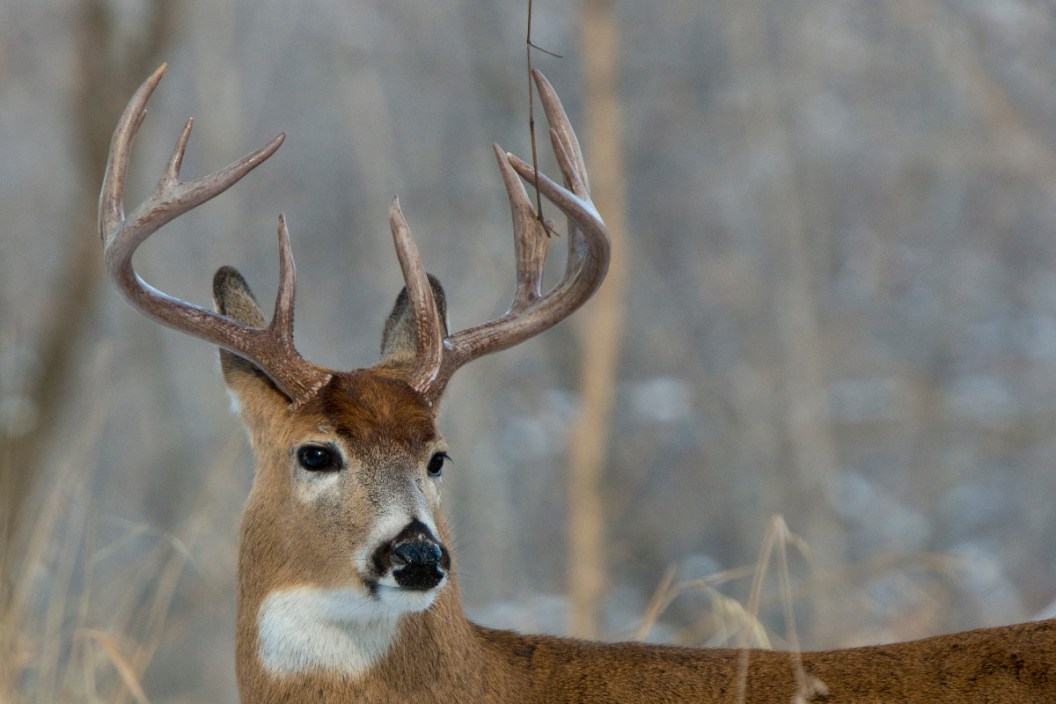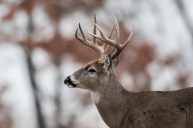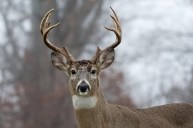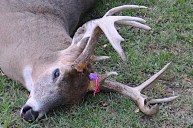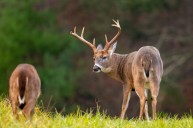November is quickly drawing to a close, and so is the Michigan regular firearms deer hunting season. Michigan deer are feeling the pressure of hunting season and another fast-approaching winter and, if you haven't managed to bag out yet, whether through archery season or regular firearms season, you may be feeling the pressure of a freezer that's empty of venison. Thankfully, the Department of Natural Resources (DNR) gives Michigan hunters one last chance to bad a late season deer: muzzleloading season.
Some hunters may be intimidated by muzzleloaders, and the more primitive styles with flintlocks can have a learning curve. However, modern-day muzzleloaders are extremely capable, efficient, and, by comparison, easy to use. Plus, using a muzzleloader gives you access to season dates that are off-limits if you're using a rifle or a bow, and depending on the state there can be increased bag limits. There are fewer muzzleloading hunters out there, too, so white tailed deer aren't under as much pressure during the muzzleloading season and you'll likely have the woods to yourself.
Michigan has long had a muzzleloading season for deer after their archery and gun seasons, giving deer hunters a second chance to fill their freezer and Michigan deer tags. There's been several updates to the Michigan muzzleloading season, starting in 2022, however. We're going to dive into the nuts and bolts of muzzleloading in Michigan and break down the hunting regulations for this short season, which gives hunters one last opportunity at that big buck with their firearms before the new year.
Michigan Deer Muzzleloader Season Dates
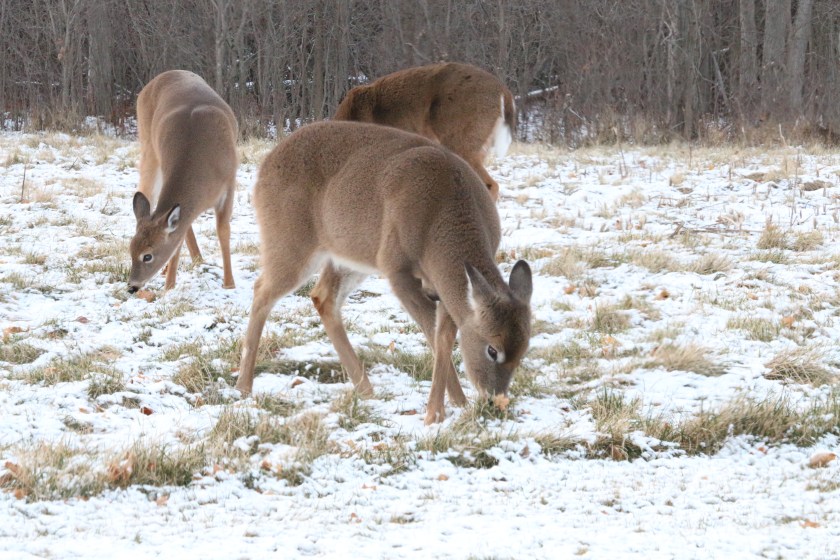
Getty Images, DLYork
Michigan is divided into three different hunting zones from top to bottom, and the state used to run muzzleloader seasons at different times in the different zones. Thankfully, they simplified things starting in 2022, with all zones having a muzzleloader deer season during the same dates. For 2023, muzzleloading deer season runs from December 1 to December 10 statewide—simple and to the point. These universal dates make it a lot easier for hunters to follow regulations without getting confused.
Bag seasons are the same statewide, just like season dates. Muzzleloading hunters are limited to one deer per kill tag in all three hunting zones. Hunters will have one kill tag per season unless they bought a deer combo license, which gives them two kill tags. All hunters, whether on public or private lands, will have to pay attention to any antler point restrictions or antlerless deer harvest restrictions for some counties, mainly in the Upper Peninsula. These regulations can be found on the Michigan Department of Natural Resources website, or by reading up on the Michigan deer combo license.
The only real downside to Michigan's muzzleloader season is that it comes right at the heels of Michigan's regular firearm season, which closes November 30. Hunting with a muzzleloader is a good deal more difficult than with a rifle, and having a field full of deer who are already spooked from regular firearm season just adds to the difficulty. Ideally, there would a week-long break between seasons where only archery was legal, to let things settle down from regular firearms season, or muzzleloader season would come before firearm season, as it does in many states.
What Guns Can You Use During Michigan Muzzleloader Season?
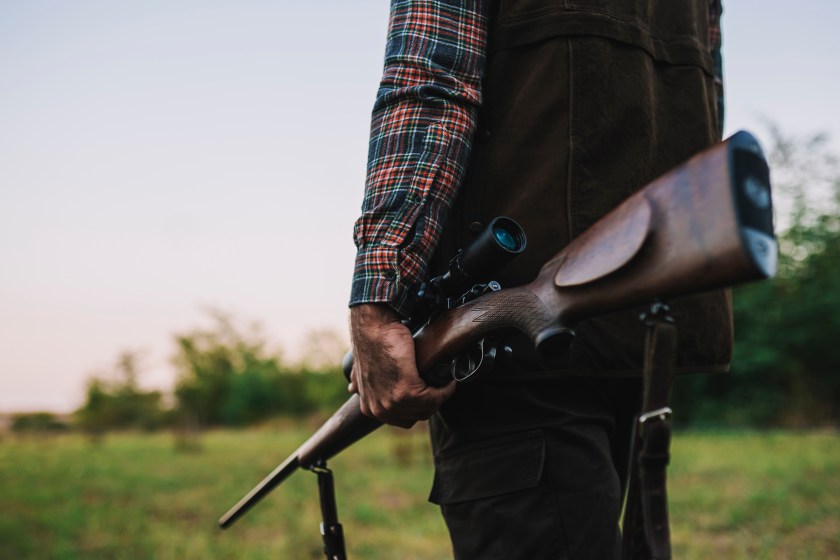
Getty Images, Obradovic
You'd think that in a muzzleloading deer season, you'd only be able to use a muzzleloader. Here's where things get confusing in Michigan. In 2020, the Michigan Natural Resources Commission approved new regulations that shortened the Lower Peninsula's muzzleloader season from 17 days to 10.
It also legalized all firearms during the muzzleloader season in Zone 3 in southern Michigan, also known as the "limited firearms zone" or the "shotgun zone."According to the 2023 Michigan hunting regulations, the "all firearms are legal during muzzleloader" distinction also applies to Bay, Oceana, Newaygo, Mecosta, Muskegon, Midland, and Isabella counties. Before you get too excited, it's not a complete free-for-all. The Zone 3 limited firearms restrictions still bind you, so you're limited to shotguns and .35-caliber or larger rifles that fire straight-wall cartridges with a maximum case length of 1.80 inches.
Despite these restrictions, the "limited firearms zone" gives the southern half of the state another week of regular firearm deer season with a one-day break in between.
By contrast, in Zone 1 and 2 (central Michigan and the Upper Peninsula) hunters can only take a deer during the muzzleloading season with a muzzleloading rifle, muzzleloading shotgun, or black powder pistol. In the Upper Peninsula, hunters with a disability or in the Chronic Wasting Disease (CWD) surveillance area can also use a crossbow.
This move wasn't publicized much when the DNR made this decision, and it didn't offer much explanation either. We suspect it also has to do with the deer population being much more robust in the southern half of the state than in other areas, and some areas being prone to Chronis Wasting Disease. The DNR wants hunters to harvest more deer, and by eliminating the need for a second weapon, they're probably hoping more hunters get into the field in December harvesting deer.
Legal Muzzleloaders and Other Thoughts
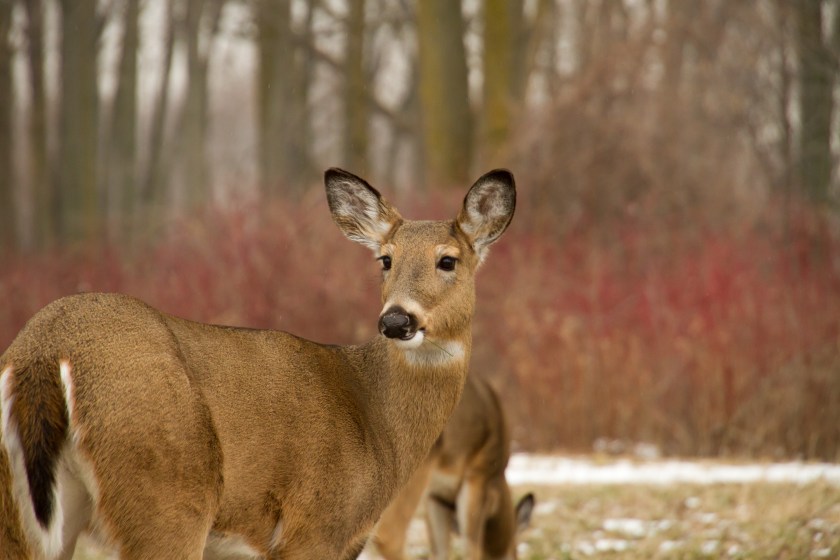
Getty Images, Dantesattic
For those not hunting in Zone 3, or those who want to keep things traditional during the muzzleloader season, it's worth going over what a legal muzzleloader is in Michigan. According to the Michigan DNR, a muzzleloading rifle, shotgun, or black powder pistol must be loaded with either black powder or a commercially manufactured black powder substitute.
Michigan has no specific wording about the caliber of black powder firearms in its regulations, but most hunters still using black powder muzzleloaders are using a standard .50-caliber. I'm partial to the Thompson Center Encore and Omega myself.
Be aware, if you're hunting deer in Michigan, you have to wear hunter orange, baiting deer is illegal, and harvest reporting is in effect.
And, wherever you choose to hunt, don't forget to layer up for Michigan's muzzleloader season. The snows are already here, and once the wind starts whipping, it can get chilly in the treestand waiting for a late-season buck.
READ MORE: Michigan Late Doe Season, Key Dates and Regulations to Know
